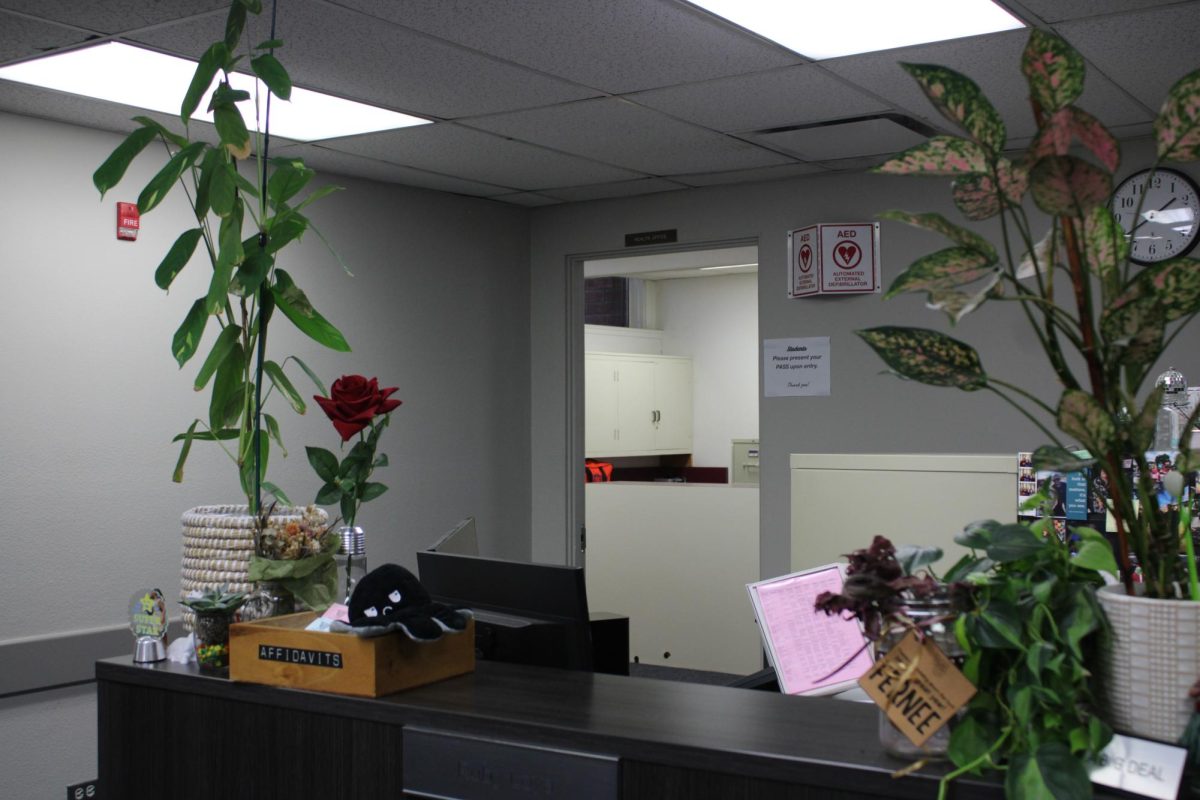Students with diabetes came across privacy concerns when a new rule was implemented in the health office. The health office is accessible to students throughout the day and despite most only visiting on rare occurrences, some students have to go daily.
Due to Family Educational Rights and Privacy Act (FERPA) laws, the total number of students with diabetes on campus cannot be confirmed, but those with this health condition are required to make such trips to the health office during the school day. The typical office visits were changed by the end of September when Principal Charles Park instructed health clerk Aileen Pastrana about a new rule.
“For the past six years I worked here we were able to have the door closed, but this year our principal wants it to stay open,” said Pastrana.
Type 1 Diabetes (T1D) is an autoimmune disease that occurs when a person’s pancreas stops producing insulin, the hormone that controls blood sugar levels. People who live with T1D must take insulin via injection or insulin pump to regulate their blood sugar. Insulin helps break down the carbohydrates which helps the blood sugar enter the cells in your body for use as energy. For that reason, high and low blood sugars are damaging to the body.
Type 1 Diabetics are insulin-dependent to survive therefore visits to the health office are extremely important. Visits can include finger pricking to check glucose levels, insulin injections, changing insulin pumps, carb counting, and treating high and low blood sugar levels.
This unofficial rule that the principal put into place has caused students with diabetes to feel uncomfortable. Freshman April Aviles is a private person who does not appreciate that people may be curious about what she is doing. Aviles goes into the health office during nutrition and lunch where she has to take her food to count her carbs and take injections. To count her carbs she has to look at the nutritional facts on the food and then calculate that with her carb ratio which determines how much insulin she needs to take.
Aviles reported her feeling of discomfort following the rule’s implication, detailing that taking injections is a private matter. With the door open, she feels exposed knowing anyone can come in at any moment.
“I want to feel comfortable and not worry about someone walking in out of nowhere and looking at what I’m doing,” said Aviles.
“The main health office door is not a private door and should be left open,” said Park.
Park wanted the door to remain open so that students could access the nurses’ office. He then said it would only be okay to close the door if students were in the cot room where they lay to rest if not feeling well. Otherwise, he wants students with diabetes to use the cot room for their injections or check their blood sugar.
Living with diabetes can be difficult, upsetting, and life-threatening. For that reason, students with diabetes want to feel comfortable and have space and privacy when needed. Students can now rest assure that they have privacy.









